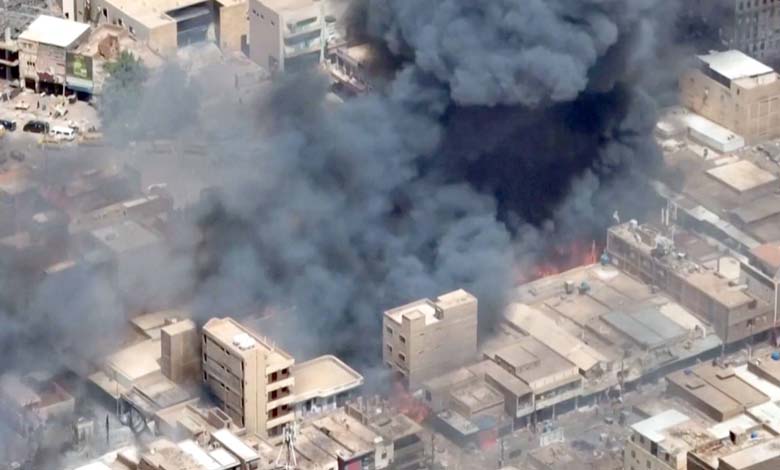Khartoum rejects the British resolution on Sudan

The Sudanese Ministry of Foreign Affairs has issued a press statement in which it strongly rejects the British resolution project presented to the Human Rights Council for the adoption of a resolution regarding the current crisis in Sudan.
The ministry’s rejection is based on the grounds that the resolution equates the armed forces with the Rapid Support Forces and calls for the formation of a committee to investigate the facts on the ground.
Statement Text
Since late August, some Western circles have initiated an organized political and media campaign supported by several non-governmental organizations, calling on the Human Rights Council to adopt a resolution on the current crisis in Sudan. One of the main shortcomings of this campaign is its lack of objectivity and fairness, as it equates the Sudanese armed forces with rebel militias and demands the establishment of a committee to investigate the facts.
This comes at a time when Sudan is facing a war that threatens its unity, independence, security, and stability as a member state of the United Nations. The conflict is being waged by militias composed of mercenaries from some regional countries, supported by external entities with known affiliations. Additionally, the rebel militias continue to commit acts of ethnic cleansing, mass killings, rape, torture, displacement, and the detention of thousands of civilians. They are also engaged in systematic and widespread looting in the capital, forcibly evicting residential areas, using civilians as human shields, recruiting children, and destroying strategic, economic, service, cultural, and educational institutions. These serious crimes have not received the condemnation and efforts to stop them from some influential Western powers.
Furthermore, the resolution project is presented at a time when the Sudanese armed forces are carrying out their constitutional, legal, and ethical responsibilities to defend the country and its people against what amounts to foreign invasion, in line with the United Nations Charter.
In light of the above, the Ministry of Foreign Affairs reaffirms that the protection and promotion of human rights in Sudan remain a top national priority and commitment. This is evident in Sudan hosting a full office of the United Nations High Commissioner for Human Rights, a designated expert on the human rights situation in Sudan, and a specialized unit for human rights within the UNAMID mission. Additionally, Sudan has established a national committee chaired by the Attorney General to investigate war crimes and violations committed by the disbanded Rapid Support Forces. Therefore, no external party can surpass Sudan’s commitment to protecting and promoting the human rights of its citizens and cooperating with relevant international mechanisms.
The British-led campaign, which has been joined by some Western countries since last August, now faces collective rejection from all geographical and political groups to which Sudan belongs (the Arab Group, the Organization of Islamic Cooperation, and the African Group). Despite this, Britain has proceeded to submit the resolution project to the Human Rights Council. Therefore, the Ministry of Foreign Affairs reaffirms its absolute rejection of the resolution project because it inaccurately describes the situation in Sudan, demonstrates bias against the Sudanese armed forces, and does not consider Sudan’s real priorities at this stage, which include ending the rebellion, stopping ongoing atrocities, evacuating civilians’ residences and civilian properties, including hospitals and places of worship, facilitating the delivery of humanitarian aid as stipulated in the Jeddah Declaration of Humanitarian Principles signed on May 11 last year, and silencing the guns.












